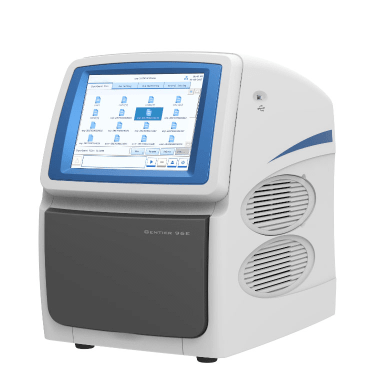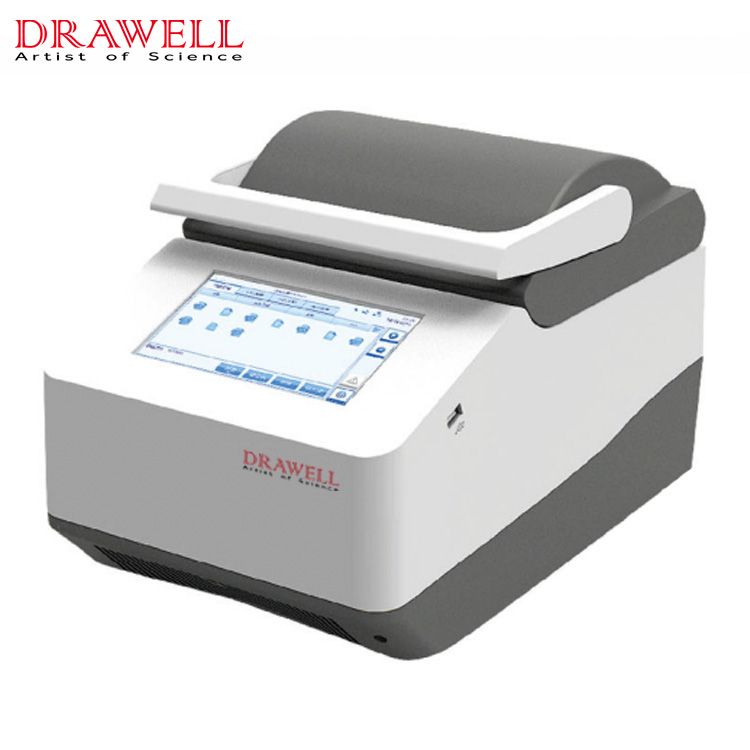The Pivotal Role of PCR in Forensic Science: Amplifying Specific DNA Regions for Analysis
Polymerase Chain Reaction (PCR) technology stands as a cornerstone in molecular biology, particularly in the realm of forensic science, where it plays a pivotal role in amplifying specific DNA regions for analysis. This article delves into the advantages, limitations, and diverse applications of PCR in forensic investigations.

Advantages of PCR in Forensic Investigations
PCR boasts several attributes that render it well-suited for forensic applications:
High Sensitivity and Specificity:
PCR is highly sensitive and specific, enabling the accurate detection and amplification of even minute DNA amounts.
Versatility with Sample Types:
It can effectively work with small or degraded samples, such as those derived from hair, bones, or aged bloodstains.
Simultaneous Analysis of Multiple Samples:
The technology's capability to analyze multiple samples simultaneously enhances forensic scientists' efficiency in processing large sample numbers.
Types of PCR Assays Used in Forensics
Various PCR instruments used to meet the diverse needs of forensic investigations:
Short Tandem Repeat (STR) Analysis:
A common approach, STR analysis compares specific DNA regions to create unique profiles for individuals, facilitating the matching of DNA evidence to suspects or victims.
Single Nucleotide Polymorphism (SNP) Analysis:
This assay examines single nucleotide differences in DNA, aiding in determining relationships between individuals.
Mitochondrial DNA (mtDNA) Analysis:
Ideal for analyzing highly degraded samples, such as those from ancient bones or teeth.

Applications of PCR in Criminal Investigations
PCR finds widespread applications in criminal investigations, including:
Identification of Suspects or Victims:
Forensic scientists utilize PCR to identify perpetrators in cases like sexual assaults, based on DNA evidence left at crime scenes.
Exoneration of Wrongfully Accused Individuals:
PCR can prove the innocence of those wrongly accused by demonstrating a lack of match between their DNA and that found at the crime scene.
Limitations and Challenges of PCR in Forensics
Despite its advantages, PCR encounters limitations and challenges in forensic applications:
Contamination Concerns:
Potential contamination from the environment or other samples requires meticulous handling and the implementation of controls for result accuracy.
Interpretation of Complex DNA Mixtures:
Complex DNA mixtures, such as those from multiple individuals or degraded samples, pose challenges in interpretation, spurring the development of new technologies to enhance result reliability.
Future Developments in Forensic PCR
The future of forensic PCR holds promising developments:
Next-Generation Sequencing:
This technology enables the analysis of more complex DNA samples, providing detailed information about an individual's DNA profile.
DNA Databasing and Bioinformatics:
Advancements in DNA databasing and bioinformatics support the analysis of vast datasets, fostering connections between different cases.
Conclusion
PCR technology has transformed forensic science, providing investigators with a potent tool for individual identification and DNA analysis. Despite existing limitations and challenges, ongoing advancements, particularly in next-generation sequencing and bioinformatics, promise a bright future for PCR in forensic investigations. By continually refining and improving PCR technology, forensic scientists contribute to ensuring justice is served and holding the guilty accountable for their actions.
- Art
- Causes
- Crafts
- Dance
- Drinks
- Film
- Fitness
- Food
- الألعاب
- Gardening
- Health
- الرئيسية
- Literature
- Music
- Networking
- أخرى
- Party
- Religion
- Shopping
- Sports
- Theater
- Wellness


